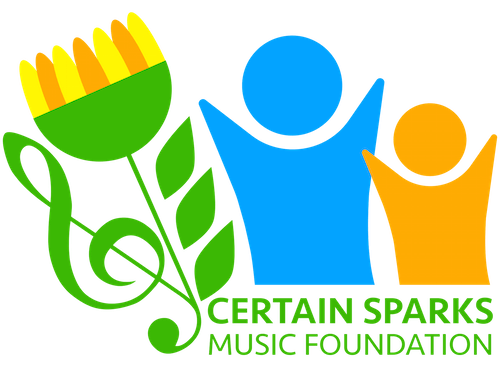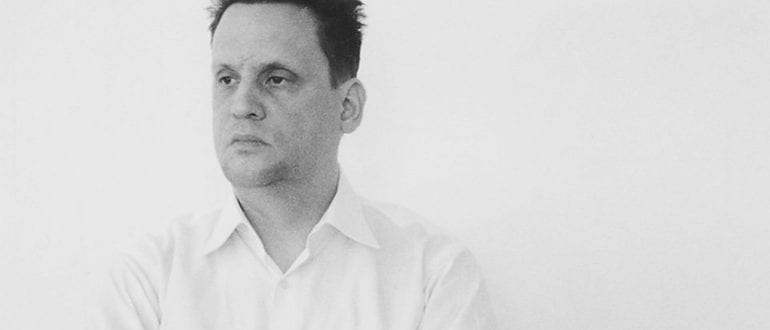A Conversation With Mark Kozelek of Sun Kil Moon
Certain Sparks Music Foundation is hosting a fundraiser on Sunday, April 21st — and we’re honored to bring Mark Kozelek to the stage at Lompoc Wine Factory.
Since the 1990s, he’s made waves as a prolific songwriter in Red House Painters, Sun Kil Moon and under his own name.
His latest pair of albums, 2018’s This is My Dinner and 2019’s I Also Want to Die in New Orleans, push his style into a stream-of-consciousness, autobiographical realm like never before.
Read on for an interview with Kozelek conducted by Morgan Enos, a Billboard journalist and friend of Certain Sparks Music Foundation. We’ll see you at the show! BUY TICKETS!
Mark, it’s a pleasure to speak with you. How would your life be different today if you weren’t exposed to music? What if you weren’t curious about music at a young age?
My pleasure as well. I had a drug problem as a kid, so without a doubt it would have been death or prison or a terrible life had I not gone to rehab at 14. I had no interest in anything other than music from the very beginning. I never had a plan B.
Last year, you stopped by Lompoc while traveling with the band Xylouris White. Not the most well-known place, but you thought to mention it in your songs “L-48” and “Couch Potato.” How did the vibe of Lompoc strike you?
I liked the vibe there. There was a girl who sang “Somewhere Over The Rainbow” with her father accompanying her on guitar in another room just before Xylouris White went on. That blew me away. Then, her and her mother were selling cookies for a fundraiser during the Xylouris White show.
I don’t see this kind of thing every day in rock n’ roll. That was a special night. The crowd was attentive and respectful. The town was peaceful. Everyone I met was nice.
The Certain Sparks Music Foundation aims to enrich local youth through music. It’s strange how many kids aren’t exposed to music at all. Are people who don’t really care about music missing out?
I got to be honest, I don’t know what people are into anymore other than Instagram, hating the president, and watching TV. Music saved my life. It gave me a direction other than the robotic work choices I saw as a kid in Ohio. I’ve seen parents trying to steer their kids away from music and push them towards toolbox lives and it annoys me.
If your kid can sing, let them sing. Music has taken me all over the world. I’ve made a lot of friends through playing music. My parents never interfered with my choice to pursue music. They saw that music was in my blood and they let me run with it.
How would you explain your music to a child? It’s very personal and long-winded and doesn’t resemble much else out there.
It wouldn’t be on a smartphone because I don’t own one. I’d play CDs on a stereo and see if it catches their attention. I wouldn’t explain it, I’d just play it. Maybe I’d pick up a guitar and play my own music for them. That’s what got me started. Seeing a woman play John Denver songs on someone’s lawn in Ohio.
Many of your songs are based less on verses and choruses than monologues. Do you tend to sing straight from your journal?
It’s not as black-and-white as that. I’ve got maybe 52 albums or something, so we’d have to break things down album by album, which I don’t have time for. There are many verses and choruses. Even in my newer music, there are verses and choruses. Maybe not in a traditional way, but they’re in there.
Some singer/songwriters need a specific band, but it seems like you can jump in and play with nearly anyone, adjusting to their style. What gave you that flexibility?
Playing music since I was a kid and then turning 40 10 years ago. Henry Miller said that real artists don’t really find their voice until 45 and I agree. I wasn’t able to relax until about 40, the album Among the Leaves being the turning point.
Once I hit 40, I became more confident through experience. Studios don’t intimidate me anymore and I’m relaxed around great musicians. I can learn from them, finding rhythms and stretching into ranges that I wouldn’t find being on my own.
Your latest albums This is My Dinner and I Also Want to Die in New Orleans take a new direction that’s closer to freeform jazz. You’re known for your voice and lyrics, but are you influenced by instrumental music as well?
I don’t listen to much jazz but like playing with jazz musicians. I can mix things up with them and jump into different time changes. It’s fun and challenging and keeps me on my toes. The only instrumental music I listen to is classical music.
You’ve made acclaimed albums and others that rankle people who don’t get it. Would you tell a young musician to follow their muse and ignore the critics?
Led Zeppelin’s first three albums got ran into the ground. Nobody cared. Music either grabs you or it doesn’t. Doesn’t matter what Joe Blow from X, Y, Z magazine says. Music speaks to you or it doesn’t. Some of my favorite books, albums and movies were bashed when first released, and in some cases banned, but they went on to become classics.
Most writers aren’t as sensual as you. You elaborate at length on interesting cities, delicious meals and memorable conversations. Are you trying to stress in your music that life is precious?
Not at all. I think there are many writers who sing about cities, meals and conversations. Here are a few examples:
“We all came out to Montreux on the Lake Geneva Shoreline.”
—Deep Purple, “Smoke on the Water”
“She said you’re strange, and don’t change, and I let her.”
—Neil Young, “Mr. Soul”
“So, Mom, if you please, pass me the pork roll egg and cheese, if you
please, on a kaiser bun.”
—Ween, “Pork Roll Egg and Cheese”
I could go on and on. Johnny Cash wrote about cities, Bon Scott wrote about caviar, Cibo Matto wrote about chicken, Bob Dylan wrote about conversations.

